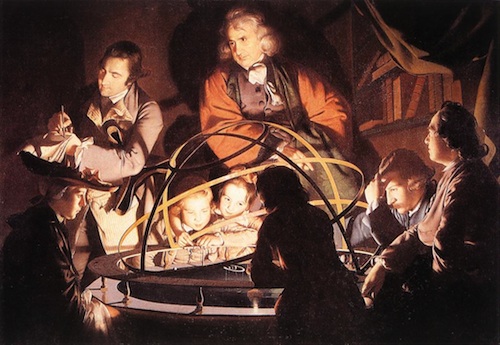
A reading of Schopenhauer, inspires a different view of old Nietzsche. Continue reading Does the abyss look into you?

A reading of Schopenhauer, inspires a different view of old Nietzsche. Continue reading Does the abyss look into you?

In Latin that spells “nothing is without reason.” We often say “everything has a reason” when we are trying to explain something, an object or an event. The appropriate philosophical terminology is a bit more technical: the principle of sufficient reason, (PSR) which means all contingent facts have an explanation. Continue reading Nihil est sine ratione

Previously, I discussed the concept of metaphor here, and I thought a lot was left unsaid. Continue reading Metaphor is fundamental

History teaches us that the mode of philosophical thought predetermines its results. Philosophy, conceived as either a reflective, a contemplative or a communicative discipline – where philosophizing is the act of reflection, contemplation or communication – contains the impulse towards a system. What often entrenches the mind is dogma, in the form of worthless first principles, the advocacy of degenerating metaphysics, and the required lip-service to distinguished intellectuals. In order to resist this solidification of the mind, drop the abstract play of abstractions and return back to the present moment and rethink the situation, the problem, the concept under question. Moreover, a rigorous and honest self-criticism will help avoid the repetition of ineffective methods. Perhaps new directions, even if they are risky, are called for, since by giving up in comfort and security, one gains new ground by boldness. When the mind makes itself fluid and mobile – call the concept into question – war is declared against slothfulness, the inertia of thought, and static views and isolated idee fixes are condemned. Continue reading Strategy of thought

The irony of the Enlightenment: Immanuel Kant, the late 18th century thinker, was indisputably the greatest philosopher of Enlightenment. But it is also interesting to note that his critical philosophy project resulted in a devastating blow to the foundation of Enlightenment itself- our trust in reason. The faculty of reason is essentially an impulse for the unconditioned condition, and constantly urges our understanding on. Kant made it clear that man will never know the true nature of reality, and is limited to mere appearances. Despite being championed as the great icon of Enlightenment, with his transcendentalism he set the ball rolling down the mountain of truth and shattered the ideals of the gilded age at the bottom, in the gulch of the 20th century.
We are picking among the remnants for whatever remains salvageable. The consequences of such absurd praise of reason or rationalism in Enlightenment resulted in two great wars in the 20th century, which were committed at the source of naturalistic humanism. Reason and rationalism, secular reasoning especially never achieved its vast promise of transforming a superstitious culture into a rational utopia. At least some of us realize that within this massive failure, liberation is never of the human, but always and only in a negatory manner: from the human. Where does that leave us? The ghost of a lost innocence haunts the age in the form of postmodernist reflections.

A. J. Ayer, when charged with trivialization of philosophy, claimed that the distinction between “about language” and “about the world” is not sharp, for the world is basically our description of the world in our system of concepts. Therefore the investigation of language is the investigation of the structure of the world as experienced by human beings. Continue reading The Trivialization of modern philosophy, part II

I have compiled a brief essay on linguistic analysis and its trivialization of philosophy. The first part will look at the historical precedent of linguistic analysis and the methodology of the program, and its limitations. In the next part I will focus on Wittgenstein, on whether the structure of the world is necessarily the structure of our language, and other related aspects. Continue reading The Trivialization of modern philosophy

Some thoughts about Soren Kierkegaard, from a philosophical angle. Continue reading Comments about Kierkegaard

Previously posted on alldeaf.com, and the subsequent posts have been modified accordingly…
Here’s a dilemma I’ve been thinking lately, and not only does it prove the incoherence of Christianity, it also demonstrates the internal contradiction within apologetics. It has to do with God’s pure and holy state that cannot abide the presence of a sinner. He is incapable of forgiving sinners without a meditator, and that is the sacrifice of JC himself, jayzum kerow, alias Jesus Christ. Jesus’ sacrifice was necessary, for otherwise, even one little widdle sin would result the utter annihilation of the sinner in the presence of the Almighty. But here’s the crux of the problem, and consequently the incoherence as well as the illogic of Christianity. Continue reading The Great Contradiction of Christianity
Some people think there are things in the realm of knowledge that are absolutely beyond the ken of the man in the street (MITS). I would have to say no, because that would mean the MITS is completely incapable of learning, and that the supposed realms of knowledge are wholly inaccessible. Continue reading Should philosophical discourse be clear and distinct?